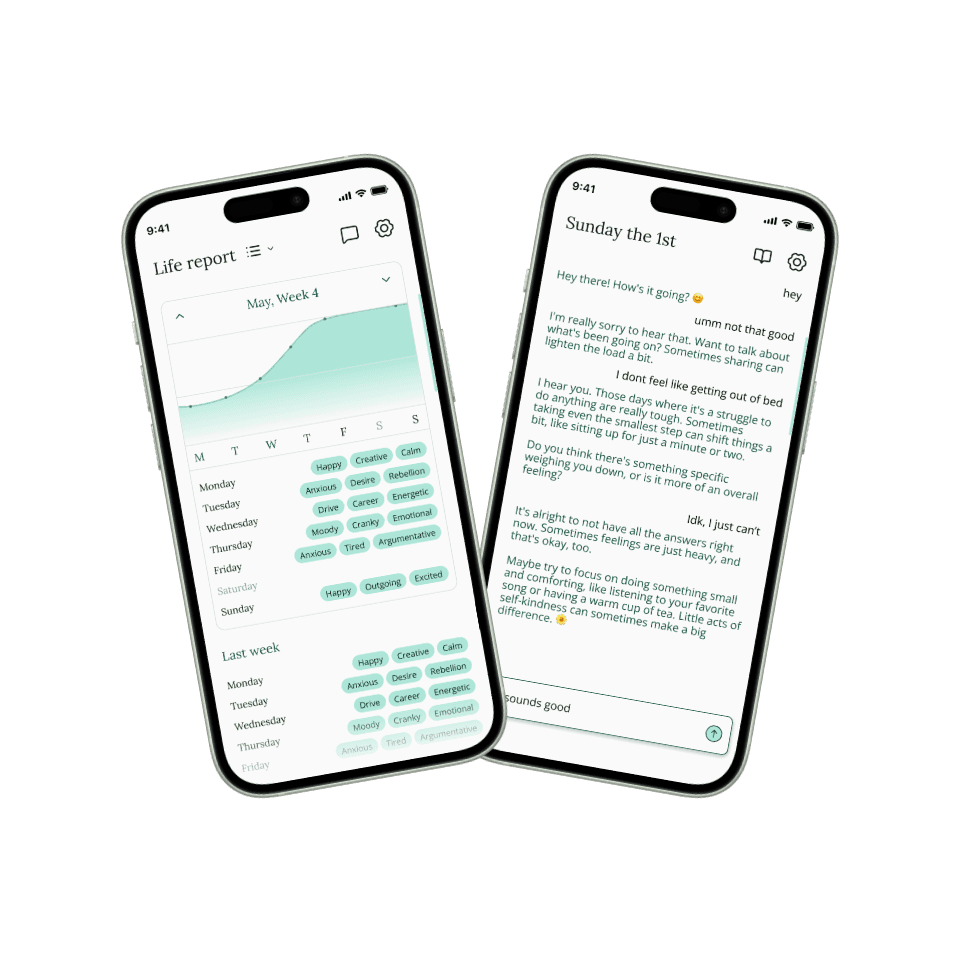
How To Handle Intense Therapy Sessions
How To Handle Intense Therapy Sessions
Aug 10, 2024
Aug 10, 2024
Therapy sessions can sometimes become emotionally overwhelming, catching you off guard with their intensity. Whether you're processing trauma, confronting deep-seated fears, or experiencing a sudden breakthrough, these moments can be both powerful and disorienting. Here's a practical guide to help you navigate when your therapy session becomes more intense than you expected.
1. Use Grounding Techniques in the Moment
When emotions run high and you feel overwhelmed:
Take slow, deep breaths: Count to four as you inhale, hold for four, then exhale for four. Repeat this cycle until you feel more centered.
Engage your senses: Focus on something tangible in the room. Describe to yourself (or your therapist) what you see, feel, or hear. For example, "I see a blue painting on the wall. The frame is wooden. I can feel the texture of the chair's armrest under my fingers."
Use a physical anchor: Press your feet firmly into the floor or squeeze a stress ball. These physical actions can help redirect your focus and provide a sense of stability.
2. Communicate Openly with Your Therapist
Your therapist is there to support you through these intense moments:
Be honest about your state: Say something like, "I'm feeling overwhelmed right now" or "This is more intense than I expected."
Ask for what you need: Request a short break, a glass of water, or a moment to collect your thoughts.
Seek guidance: Ask your therapist, "Can you help me process this?" or "What can I do to manage these intense feelings?"
3. Implement a Post-Session Care Plan
After an intense session, it's crucial to take care of yourself:
Don't rush back to normal activities: If possible, schedule buffer time after your session. Use this time to journal, meditate, or simply sit quietly.
Engage in a calming activity: Go for a walk in nature, listen to soothing music, or practice gentle yoga to help transition out of the intense emotional state.
Reach out for support: Call a trusted friend or family member. You don't have to share details of your session, but having a supportive conversation can help you feel grounded.
Remember, intense moments in therapy, while challenging, often lead to significant personal growth. By using these practical strategies, you can navigate these experiences more effectively and make the most of your therapeutic journey.
Therapy sessions can sometimes become emotionally overwhelming, catching you off guard with their intensity. Whether you're processing trauma, confronting deep-seated fears, or experiencing a sudden breakthrough, these moments can be both powerful and disorienting. Here's a practical guide to help you navigate when your therapy session becomes more intense than you expected.
1. Use Grounding Techniques in the Moment
When emotions run high and you feel overwhelmed:
Take slow, deep breaths: Count to four as you inhale, hold for four, then exhale for four. Repeat this cycle until you feel more centered.
Engage your senses: Focus on something tangible in the room. Describe to yourself (or your therapist) what you see, feel, or hear. For example, "I see a blue painting on the wall. The frame is wooden. I can feel the texture of the chair's armrest under my fingers."
Use a physical anchor: Press your feet firmly into the floor or squeeze a stress ball. These physical actions can help redirect your focus and provide a sense of stability.
2. Communicate Openly with Your Therapist
Your therapist is there to support you through these intense moments:
Be honest about your state: Say something like, "I'm feeling overwhelmed right now" or "This is more intense than I expected."
Ask for what you need: Request a short break, a glass of water, or a moment to collect your thoughts.
Seek guidance: Ask your therapist, "Can you help me process this?" or "What can I do to manage these intense feelings?"
3. Implement a Post-Session Care Plan
After an intense session, it's crucial to take care of yourself:
Don't rush back to normal activities: If possible, schedule buffer time after your session. Use this time to journal, meditate, or simply sit quietly.
Engage in a calming activity: Go for a walk in nature, listen to soothing music, or practice gentle yoga to help transition out of the intense emotional state.
Reach out for support: Call a trusted friend or family member. You don't have to share details of your session, but having a supportive conversation can help you feel grounded.
Remember, intense moments in therapy, while challenging, often lead to significant personal growth. By using these practical strategies, you can navigate these experiences more effectively and make the most of your therapeutic journey.
View more insightful blog articles
Today's tune



Track your mental health and get support between sessions with Verba
Learn more

Track your mental health and get support between sessions with Verba
Learn more

Track your mental health and get support between sessions with Verba
Learn more

Advait Naik
Advait is the founder of Verba and is working at the intersection of psychology, design and technology to create Verba, an app that helps us be more self aware through clarity and communicate our life in therapy